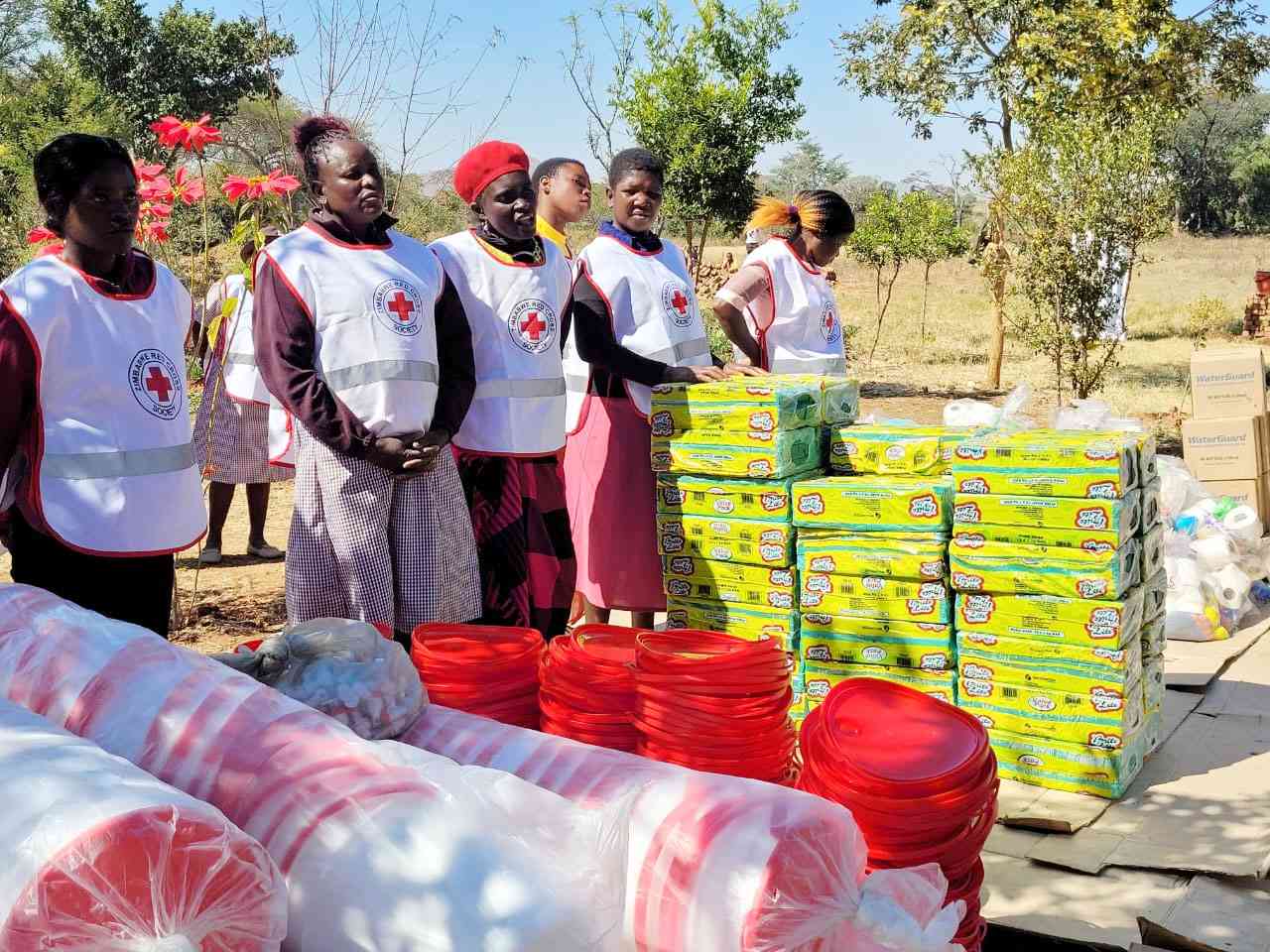
Scores of vulnerable families in cholera affected communities countrywide are set to receive health and hygiene kits including non-food items as the Zimbabwe Red Cross Society (ZRCS) in partnership with the government moves in to tackle the acute diarrhoeal infection caused by ingestion of food or water contaminated with the bacterium Vibrio cholerae.
Zimbabwe has been grappling with a cholera outbreak since February 12, 2023 and as of last Thursday, a total of 34 500 cholera cases and 630 deaths were reported.
As such, several organisations such as the ZRCS with support from International Federation of Red Cross and Red Crescent Societies are actively implementing the Cholera Emergency Appeal programme in Mashonaland Central, Mashonaland West, Manicaland and Masvingo provinces as well as other districts.
The initiative focuses on preventing and controlling the spread of cholera at both community and facility levels in the affected districts.
“The aim of this intervention among other things, is to interrupt transmission by putting strategies in place to break the chain of cholera transmission within communities,” said ZRCS secretary-general Elias Hwenga.
“We seek to improve and enhance the management of cholera cases at healthcare facilities and within communities while active case-finding and disinfection are also part of the mitigation measures.”
Hwenga said the project also aims to promote good hygiene practices and improve sanitation standards.
Last Friday as part of the comprehensive strategy, the ZRCS handed over a water point at Davaar Primary Health Centre in Mazowe, Mashonaland Central province.
- Abductions are a crime against humanity: ZLHR
- Red Cross offers free cancer screening at agric show
- Public urged to train in first aid
- ZRCS feeds 4 250 Mwenezi villagers
Keep Reading
The project, which was funded by the Norwegian Red Cross and is aimed at improving access to clean and safe water, was conducted in collaboration with the District Water Supply and Sanitation Committee, local authorities, volunteers, and the community.
“Access to clean water is not just a necessity, but a fundamental human right,” said Hwenga.
“In Zimbabwe, where the threat of cholera still lingers, ensuring access to clean water is crucial for the health and well-being of our people.
“As the Zimbabwe Red Cross Society we have rolled out several interventions to guard against cholera which includes setting up of oral rehydration points during the peak of the disease.
“We collaborated with the Ministry of Health in raising awareness and ensuring our communities had access to healthcare when they needed it.”
Hwenga said the solarisation of the water point at Davaar Health Centre signifies more than just access to clean water; it represents resilience and sustainability.
“By harnessing solar energy, we guarantee access to this vital resource even in the most challenging circumstances,” he said.
“This initiative not only enhances healthcare, but also strengthens our community’s fabric.”
IFRC head of Zimbabwe, Zambia and Malawi Cluster John Roche said the partnerships with local organisations and government agencies were essential for a comprehensive cholera response.
“By working together, we can pool our resources, share critical information, and provide the necessary support to affected communities,” he said.
“Collaboration between international bodies and local organisations is key to combating public health crises.
“The partnership between IFRC and the Zimbabwe Red Cross has been instrumental in our ability to implement successful interventions and reach affected communities.
“It ensured that we had the financing and expertise needed to tackle this crisis effectively.
“Our joint efforts not only addressed immediate needs but also helped build long-term resilience.
IFRC’s Zimbabwe cholera response coordinator Roster Kufandiko said capacity building was critical in tackling disease outbreaks.
“Building the capacity of local organisations like the Zimbabwe Red Cross Society is crucial in the fight against cholera,” Kufandiko said.
“By enhancing their skills, knowledge, and resources, we empower them to respond more effectively and sustainably to outbreaks.
“The success of our project is evidenced by the significant reduction in cholera cases.
“Through our collaborative efforts and systematic approach, we've seen a noticeable decline in new cholera cases, which is testament to the effectiveness of the project.”
District Development Coordinator for Mazowe Mark Kadaira in a speech read on his behalf by Rumbidzai Manuwere said the solarisation of the Davaar water point was another milestone worth celebrating.
“Access to clean and safe water is fundamental to health and well-being,” he said.
“With this new solar-powered system, we not only ensure a sustainable and reliable water supply for our community, but also enhance the services provided by our local clinic, which cares for the sick and vulnerable.
“This initiative will significantly improve the quality of life and health outcomes for our people, providing them with the resources they need to thrive.
“In our fight against diseases such as cholera, it is crucial to support and collaborate with organisations like the Zimbabwe Red Cross.
“Their expertise, resources, and dedication are invaluable in mitigating outbreaks and preparing for potential health crises.
“As a district, we recognise the importance of being proactive and well-prepared.”
Meanwhile, 124 vulnerable families from the Plymouth and Davaar catchment area in ward 14 received health and hygiene kits including non-food items from the ZRCS with support from the UK government through the British Embassy in Harare.
“The distribution of non-food items to vulnerable communities demonstrates our commitment to leaving no one behind,” Hwenga said.
“Whether it's providing shelter materials, hygiene kits, or essential household items, these non-food items serve as a lifeline for those facing adversity, offering comfort, dignity, and hope in times of crisis.”
Mazowe South MP Norbert Mazungunye expressed joy over the ZRCS gesture saying it would go a long way in tackling cholera in the area.
Ward 14 councillor James Msomati said his ward was among cholera hotspots in Mashonaland Central province and thanked the ZRCS for the timely intervention.










